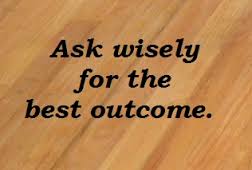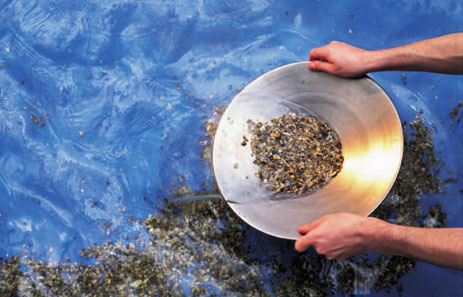
We’ve arrived at the fourth and final characteristic of a successful MGO, which is strategic solicitor. The last three posts have explored the first three other characteristics. If you have not read them, you can find them with the links at the end of this post.
This series, on the 4 characteristics of top performing MGOs, comes from Education Advisory Board research which uncovered the one natural prototype that would encompass the best MGO performers. The EAB has called that profile the Curious Chameleons.
This fourth characteristic of strategic solicitor is described by the research as the confidence and skill to artfully ask prospective donors to make a contribution. I particularly like the choice of words: confidence and skill.
“Confidence” is a state of mind, which comes from:
- Understanding that fundraising is an exchange of values and that the donor actually receives a greater value in return for his or her contribution. In other words, it is not taking money from the donor. It is actually giving the donor the opportunity to express their interests and passions.
- Knowing the details of your organization’s program. This means you know what your organization is trying to do. In the commercial workplace this is called product familiarity. You know the benefits and features of all your programs.
- Knowing the interests and passions of each donor on your caseload. This is a must, as we have said many times. You cannot be successful in major gifts if you don’t have this information.
- Understanding that a “no” is a door to a “yes”; it is not personal rejection. We have written about this and I encourage you to read the post on this topic.
If you have a firm grasp on these four points, you can’t help but be confident when you approach your donors.
The second word used in the description of this trait is “skill.” This, in my opinion, comes through training and practice. You learn how to artfully ask a donor for a contribution. You learn how to deal with objections. Jeff and I believe that if you made it a goal to read every post in our archives and then put that knowledge into practice, you would develop this skill of artful asking.
We also suggest you find another MGO that is very successful and ask them to be your mentor. Walk with them, copy them, learn from them.
Here are three key parts to being a strategic solicitor (with my comments on each):
- Exhibits transparency with donors about the purpose of cultivation visits. This goes to a deeply held value Jeff and I have. It is being authentic with donors. This means telling the truth and not using manipulation to secure your results. Transparency and authenticity with donors means that donor quickly comes to understand that you are there to help THEM fulfill their passions; that there is something in this relationship for them as well as the MGO; and that your primary interest is to help them do what they long to do in our world.
- Believes that the fastest way to qualify a donor is to solicit him or her for a gift. Careful on this one. I think that the authors mean that you identify interests and passions, build trust and then ask. They do not mean you say “hello, how about the money?” This is about sequence and timing. But it is also about asking. You cannot just relate forever and call that major gift fundraising.
- Doesn’t take solicitation rejection personally. A “no” is a true gift to a MGO. Take a look at this post on the subject. A “no” is not personal. It is a signal or sign that the path you are currently on with the donor is not the path she is comfortable with. So listen and change course. This is not about you. Do not give up. Often a no means “no, not now” or “no, not that (project).” Just listen, then go down another path. It is not about you.
The authors of the research we’ve been discussing claim that if the MGO possesses these four characteristics, there is a 78% greater likelihood of their exceeding fundraising goals vs. their peers.
Lastly, the EAB gave three suggestions on how to recruit Curious Chameleons:
- Expand the recruitment pipeline to include nontraditional candidates from fields like sales, marketing and finance.
- Implement a multi-model interview process including exercises like prospect profile reviews, writing activities, and donor role plays.
- Deploy online assessment tools to determine alignment between your ideal MGO profile and the profile of the candidates you are interviewing.
You may find that not all of this material and my suggestions apply to your situation. That is fine. But Jeff and I urge you to look at these four characteristics carefully, as we agree with the EAB that they give you clues on those traits that will make a MGO successful.
Richard
PS – For related reading, you might also like our free White Paper, The Art of Soliciting a Donor.
Series details:







0 Comments